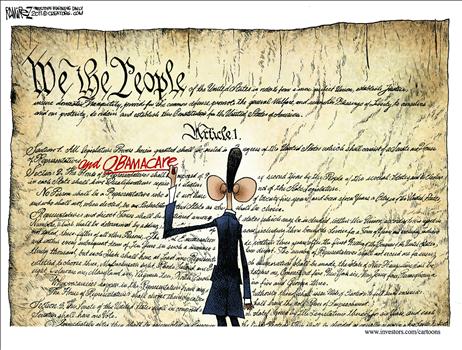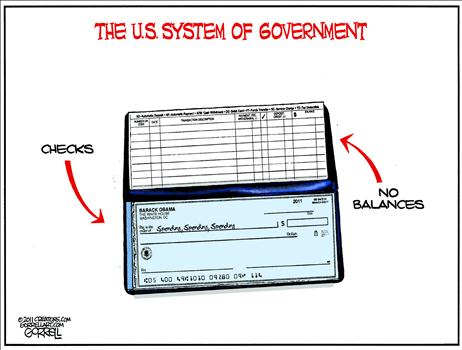I’ve been going through American history with my adult class at my church on Sundays. We’re up to the Constitution. I’m not rushing through anything; I want them to understand the importance of the rule of law and how Christians should be leaders in respecting that dictum. It’s always enlightening to show just how little the national level of our government in our federal system has the authority to do. There’s even one provision in the Constitution that requires Congress to meet at least once a year. That’s hardly a problem now—our biggest issue is getting the representatives to go home and leave us alone for a while.
But the reason why Congress meets almost continuously is that it has taken on far more than it is supposed to. If we were to go back to the limits placed on Congress in the Constitution, it wouldn’t have to be in continual session. You see, we keep adding things that really aren’t there:
We’re supposed to be a government of checks and balances, but the definition of that phrase seems to have changed over time:
When Social Security was declared constitutional by the Supreme Court back in the 1930s, the Court opened the door for almost unlimited legislating and spending. Those of us who question the constitutionality of Social Security are not fringe elements; we are standing on the bedrock of constitutional interpretation that used to dominate Court decisions prior to the New Deal. Since that time, we’ve had a pretty raw deal in many ways. Social Security is not at all secure:
Bottom line: the government has stepped so far over its boundaries, it is hardly recognizable anymore. I doubt if any of the Founding Fathers—even those who believed in a bigger-style government—would be pleased with what has happened:
It’s time for a diet.




